Stories
Follow and read interactive analysis of the court cases, families, attorneys, and judges in early Washington, D.C. Each story focuses on an historical or legal question raised by these cases and interweaves linked references to people, cases, documents, and family relationships.
The original court documents for these cases reveal what Cranch's Reports of Cases Civil and Criminal in the United States Circuit Court of the District of Columbia and other printed sources too often hid: the full names of African American litigants and the complex set of family relationships each case involved. These stories are in-depth studies of the families and cases, properly contextualized, and serve as the pivot point of a larger analysis of the social logic of early Washington, D.C., and how Americans contended with the problem of race and freedom in their society in the aftermath of the American Revolution.
The Timing of Queen v. Hepburn: An Exploration of African American Networks in the Early Republic
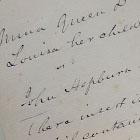
This essay examines the legal and political awareness of enslaved plaintiffs in their petitions for freedom by examining the timing and circumstances of the influential 1810 Queen v. Hepburn case.
Emancipating the Bell Family: An Inquiry into the Strategies of Freedom-Making
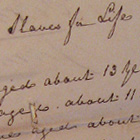
This essay examines the freedom-making of the Bell family in early Washington, D.C., both within the court and without it.
"She's been her own mistress...": The Long History of Charlotte Dupee v. Henry Clay, 1790-1840
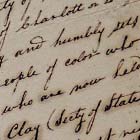
This essay explores the life of Charlotte Dupee, placing her back at the center of her own story and the history of her freedom petition against Henry Clay.
Anna: An Animated Historical Short Film

Based on historical records, this short film tells the story of one woman's quest for freedom—Ann Williams, who petitioned for freedom in the Circuit Court for the District of Columbia.
A Mother's Inheritance: Women, Interracial Identity, and Emancipation in Maryland, 1664-1820
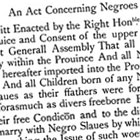
This essay explores the one hundred year struggle of the Davis family to obtain their freedom as they navigated the changing legal landscape of colonial and post-revolutionary America.
"I Did Not Want to Go": An Enslaved Woman's Leap into the Capital's Conscience
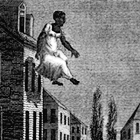
This essay analyzes an engraving from Jesse Torrey's 1817 work, A Portraiture of Domestic Slavery. The enslaved woman featured in the illustration later petitioned for her freedom in the Circuit Court for the District of Columbia.
The Business of a Nascent Federal Court: Records of the Circuit Court for Washington, D.C., from 1801-1802
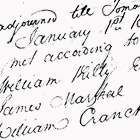
This essay reconstructs the judicial business of the first three sessions of the Circuit Court for the District of Columbia by exploring the minute books of the Court's activities.
The Language of Law: Interpreting Nineteenth-Century Legal Documents
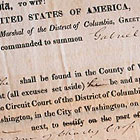
This essay gives an overview of the documents found within OSCYS and examines how they function both as part of a constrained set of legal procedures and as material texts representative of a wider genre.



